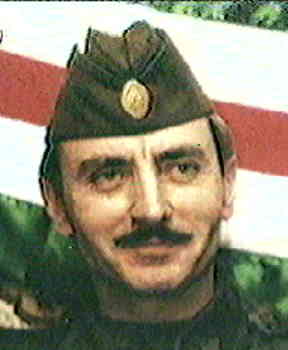Ilankai Tamil Sangam30th Year on the Web Association of Tamils of Sri Lanka in the USA |
|||
 Home Home Archives Archives |
Some Thoughts on the Deaths of Dudayev and Thamilselvanby Sachi Sri Kantha
Bertrand Russell’s Thoughts First, let me quote two paragraphs from Bertrand Russell (1872-1970), a rationalist sage of our times,. In his book, ‘The Impact of Science on Society’ (1952), Russell observed as follows:
One need not completely agree with Russell. But overall, the gist of what he stated in 1952 has not been demolished by rival propositions. To paraphrase Russell’s thoughts to the Sri Lankan island in a nutshell, here are my assertions. First, though Sri Lanka gained a sort of hotchpotch independence from Britain in 1948, social cohesion has been a mirage. Secondly, war has brought social cohesion for Sinhalese and Eelam Tamils, within their ethnic boundaries. Thirdly, Muslims and Indian Tamils face a strange situation in which they are caught in the middle. Their myopic moneybag politicians hardly help to alleviate the suffering of the Muslim and Indian Tamil populace. Fourthly, the diktat of Colombo stops at Vavuniya, since the distance from the capital to the frontier is still unmanageable. (Historically for more than two millennia, this had been so, in the island’s history.) Note that the train from Colombo stops at Vavuniya. Fifthly, to diminish and erase this distance, the glib-talking Colombo militarists salivate with long-range bombers. When Bertrand Russell wrote his above-essay 55 years ago, global positioning systems (GPS) has not been introduced to military and common use. The Sputnik satellite era commenced only in 1957. Within five decades, the battle-field strategy of embedding the satellite-based technology into the regular regimen of power display was achieved by Russia. Targeted Killing of Dzhokhar Dudayev
Thamilselvan assassination Dudayev’s killing in 1996 and Thamilselvan’s assassination appear to have many parallels, in the manner of execution. I provide the following three possibilities for Thamilselvan’s fate on November 2nd.
After an euphoric phase of gloating, the Colombo military establishment appears to concede publicly via its media mouthpieces that Thamilselvan assassination was a chance event. Either this may indeed be true, or that this may be a ‘trap’ to entice similar casualties from the LTTE’s side. The other two possibilities (security penetration by the GOSL offense, and security lapse by the LTTE defense) are two faces of the same coin. One side’s security lapse serves as the security penetration for its rival side. There is no doubt that the Colombo militarists would have identified the choice meeting joints of LTTE top rankers, by squeezing the tongue of turncoat Karuna. But it's beyond imagination that LTTEers would be so dumb as not to scramble their coordinates during the past 3 years. Maybe, there are some active moles of Colombo militarists within LTTE territory, who snoop avidly for pay in kind and/or cash. This brings up to the issue of an inadvertent security lapse by the LTTE defence. One of my correspondents raised this point. As per the information provided by defence analyst Iqbal Athas on the nitty-gritty of the Oct. 22nd Anuradhapura air-base attack by LTTE commandos,
First, I caution that we need not believe Athas’s version, since he was not an eyewitness to the Oct.22nd event which occurred in Anuradhapura. One thing has been confirmed from other sources as well: that the 21 LTTE commandos did carry handy communication gadgets and they were in ‘communication’ with the command center in LTTE homeland, for nearly six hours. In his re-telling, Athas had asserted that the LTTE commando team on that night consisted of more than the martyred 21, and a few had indeed evaded notice. If this be the case, the question arises whether the few who returned to their home base, did pick up all the “walkie-talkies” and “satellite phones” before they said their final adieu to their martyred colleagues? Wasn’t there any chance of one or two of these handy communication gadgets which fell into the GOSL army guys who dug up the rubble? And couldn’t the information stored in these handy communication gadgets had served the Colombo militarists to check the coordinates of Thamilselvan’s location on November 2nd? I reiterate that these are all postulations, based on the following premises, (1) One or two communication gadgets used by the LTTE commandos on October 22nd may have been retrieved by the search team of GOSL army. (2) These communication gadgets used by the LTTE commandos on October 22nd could have stored some useful information valuable to the GOSL army. (3) The LTTE commandos and their planners were careless not to erase or destruct the stored information in their communication gadgets. Finally, I should add that the strong possibility that these premises may not have had any strong link to Thamilselvan's death on November 2nd. ***** |
||
|
|||
 Here is the AFP newsreport of 1996 from Moscow, which announced the targeted assassination of Dzhokhar Dudayev (1944-1996), the Chechen rebel leader. “Mobil phone betrayed Dudayev’ was the caption of the newsreport. To quote,
Here is the AFP newsreport of 1996 from Moscow, which announced the targeted assassination of Dzhokhar Dudayev (1944-1996), the Chechen rebel leader. “Mobil phone betrayed Dudayev’ was the caption of the newsreport. To quote,